Amor Gabriel Naim - Interview
by John Clarkson
published: 28 / 10 / 2008
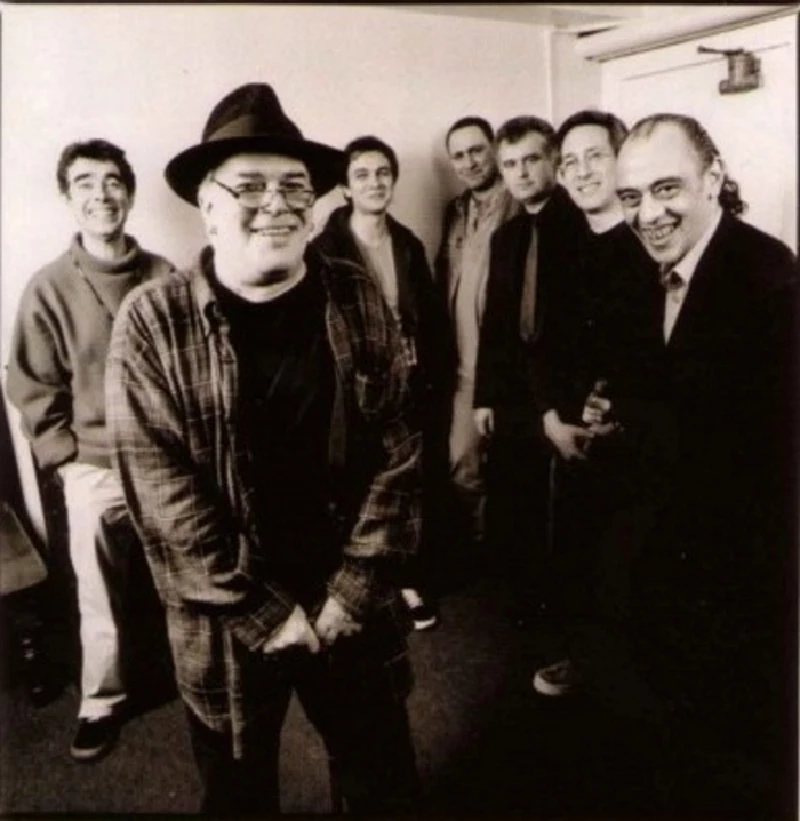
intro
John Clarkson talks to Mickey Gallagher, the keyboardist with Ian Dury and the Blockheads, about the band's extraordinary history, and their just released new singles box set
The late 70’s British punk era has been the subject of endless reissue and revival in recent years. With the exception of the Sex Pistols and Joy Division, Ian Dury and the Blockheads have had possibly more re-releases than any other act of that genre and time. There have been no less than six Dury compilations on the market over the last few years. The three albums that the Blockheads were involved in during their original lifetime, ‘New Boots and Panties’ (1977), ‘Do It Yourself’ (1979) and ‘Laughter’ (1980), were all reissued with demos and extra tracks in 2004. ‘New Boots and Panties’ was also re-released again last year in a 30th anniversary edition, with more bonus tracks and a concert DVD filmed in December 1977 at Queen Mary’s College in Mile End, London for the BBC’s ‘Sight and Sound in Concert’ series. With such an overflow of downloads and CDs already available, it seems that the last thing even the most ardent of Blockheads fans would really need at the present time is another reissue from those vaults. “It is true. There have been rather a lot of re-releases”, says the Blockheads’ keyboardist Mickey Gallagher at the beginning of a half an hour conversation with Pennyblackmusic. He is on the phone to promote a new 8 CD box set entitled ‘The Stiff Singles + The Promo Videos + The Peel Session’, which has just been released on Edsel Records. “This one is, however, different”, he adds. “Unlike a lot of the others, this one has been done in more direct consultation with us.” The new box set does indeed put fresh light on an old theme. It consists with their B sides of all seven of the singles that the Blockheads released during their time on the legendary Stiff Records between August 1977 and November 1980 (‘Sex and Drugs and Rock ‘n’ Roll’, ‘Sweet Gene Vincent’ (both 1977), ‘What A Waste’, no. 1 hit ‘Hit Me With Your Rhythm Stick’ (both 1978), ‘Reasons to Be Cheerful, Part 3’ (1979), ‘I Want to Be Straight’ and ‘Sueperman’s Big Sister’ (1980)). All the singles appear in CD-sized replicas of their original classic 7” singles. There is also another four song disc from 1977 featuring a long unheard John Peel session, the only time the Blockheads recorded a session for the BBC, and a bonus DVD consisting of all six of the promo videos that the band made for Stiff. Possibly best of all, is an extensive booklet featuring anecdotal sleeve notes from Gallagher and Dury’s chief song writing partner Chaz Jankel. The definitive Ian Dury and the Blockheads’ collection to date, the box set, despite all the other Blockheads releases that are already available, really does pull off the seemingly impossible and offer something new to fans. As well as Gallagher and Jankel (guitar, piano), the Blockheads also consisted in their prime of Norman Watt-Roy (bass) ; John Turnbull (guitar) ; Davey Payne (saxophone) and Charley Charles (drums). Dury, who had spent the early part of the 70's fronting pub rockers Kilburn and the High Roads, and the Blockheads were all between ten and fifteen years older in age than the other punk and new wave acts of the time. While they had a similar rebellious and anti-authoritarian streak, the Blockheads’ music stood out from the other bands of that era in that, rather than just being simply raw and defiant, it contained elements of jazz, funk, rock ‘n’ roll and disco. Ian Dury’s throaty vocals and lyrics, a combination of Cockney wordplay, rhyming couplets and London working class character observation, meanwhile took their main influence from music hall theatre. The original line-up of the Blockheads broke up in early 1981, but after sporadic reunions, with Steve Monti replacing Charley Charles who had died in 1990, reformed permanently in 1997 when Dury was diagnosed with bowel cancer. A comeback album, 'Mr Love Pants', came out in 1998. Since Dury died aged 57 in March of 2000, the Blockheads have carried on playing together, and been involved in recording both a compilation album with guest vocalists, 'Brand New Boots and Panties' (2001) and putting together a posthumous album with Dury on vocals, 'Ten More Turnips from the Tip' (2002). They have also released an album of their own material, 'Where's the Party ?' With the new box set setting a backdrop, Mickey Gallagher journeyed with Pennyblackmusic through Ian Dury and the Blockheads’ history. PB : The Blockheads are not credited as being the backing band on ‘New Boots and Panties’, yet several of its members played on it and it is generally seen as the first Ian Dury and the Blockheads album. When did the Blockheads actually become the Blockheads ? MG : Charlie, Norman, John and I had been playing together under the name of Loving Awareness for a few years before that. We had done some jingles and other things for Radio Caroline and used to do a lot of sessions in and about London. Norman and Charlie were sent to do the ‘New Boots and Panties’ sessions with Chaz and Ian. They were looking for a rhythm section and the guy at the studio had heard Charlie and Norman play, suggested them and they were introduced to Ian and Chaz. They worked well together and then when they had done that album the offer came in from Stiff to go out on the road and to promote it. It was just natural that John and I were brought into the fold at that point. It was a ready made band for Ian and, while we were on the road doing that, the Blockheads were born. PB : What kind of band was Loving Awareness ? What sort of music did you play? MG : We were trapped in the 60’s in our ethic, both in what we wrote about and what we sang about. When punk hit in 1976, our heads were turned a bit and it was at that point that we met up with Ian, and so we changed bell bottoms for drainpipe trousers and we went that route. Essentially though we were musicians in the popular music world and we still are. We are not particularly business men. None of us are particularly front men either. That was why it was so wonderful with Ian. We had a character out front who gave us the licence to do any sort of music that we wanted. PB : When you found yourself thrown in with the punk movement was that something then that you were quite happy about ? MG : I was quite excited about it because suddenly the music industry had some energy in it again. The music of the early 70’s was all very nice, but it had become a little bit too laid back and complacent and it just needed an injection of something different. The Sex Pistols hit and Ian had always come from a similar school of alternative thought. Suddenly he found this new wave coming towards him and, even though he was a generation or two older than the usual punk bands (Laughs), he still became like this grandfather figure in it because the other punks recognised what his contribution was to that movement. As musicians, we applied ourselves to the job in hand. We were all very much in admiration of one another musically, so it worked really well. Punk wasn’t just the end of it because we all had a lot of experience that went back years and we were able to incorporate that and take things to a new level. I always thought that Ian Dury and the Blockheads were masters in their own field because there was no one else there quite like us. PB : ‘Sex and Drugs and Rock ‘n’ Roll’, the first single in the box set, was banned by the BBC. Usually when a record is banned, that guarantees it some kind of chart success. It is seen as a classic single now and was made NME’s single of the week at the time yet it didn’t chart. Why do you think that was ? Do you think that with all the other punk records of the time it just got lost along the way ? MG : Possibly. It has stood the test of time. Everyone knows that guitar lick and that phrase, ‘Sex and Drugs and Rock ‘n’ Roll’, now. I don’t really know why though. Stiff Records was a new label at the time. There was a lot of other punk stuff out there as you say and Ian didn’t put it on the ‘New Boots and Panties’ album. They were probably all reasons. PB : He had this policy of trying not to put the singles on the album, didn’t he ? (Not only 'Sex and Drugs and Rock ‘n’ Roll’, but ‘What A Waste’, ‘Hit Me With Your Rhythm Stick’, ‘Reasons to Be Cheerful, Part 3’ and ‘I Want to Be Straight' all also didn't appear on the albums-Ed) MG : He did. He was very dogmatic about that. PB : What was his thinking behind that ? MG : It was to give each single rarity value I think. PB : ‘Sweet Gene Vincent’ , the next single, did, however, appear on ‘New Boots and Panties’. Was that put out at the record company’s insistence ? MG : Yes, but Ian was happy with it coming out as a single as well It didn’t chart again, but as we had been touring it got a bigger profile. Things, however, really started to break for us with ‘What A Waste’, which got to no. 9 in the UK charts. PB : Were you surprised when that one became a hit ? MG : No, not at all because the thing about working with Ian was we always felt from the beginning that we were going in the right direction. Directly after we did did our first television at Mile End for the BBC in late 1977 with Dr Feelgood, we knew that we had cracked it. There was a feeling in the air. It was the same with ‘What A Waste’. Right from the beginning, we knew that we could do a great job on it. After that there was ‘Hit Me with Your Rhythm Stick. ’We were all convinced that ‘What A Waste’ was going to be successful and thought that ‘Hit Me’, which followed it, would do even better still. It just popped out as soon as Chaz and Ian had written it as being the right one. We did twenty six takes of that and picked the second one. Our fingers were all bleeding from it (Laughs), but we were all convinced from the start that it would get to no. 1. PB : Chaz Jankel took a sabbatical during the recording of ‘What A Waste’ and his organ part on that song was overdubbed on later. He had done most of the song writing up until that stage with Ian, but gradually after that several of the other members of the band such as yourself and Norman Watt-Roy, Davey Payne and John Turnbull all began to pick up song writing credits as well. MG : Chaz disappeared off to the States to try his hand at writing film music. He had some American success and did some work with Quincy Jones. Chaz is a bit of a marshmallow. I think the hardness of the business out there took its toll after a while. He would come back to visit Britain a lot and every time he used to come back to England we would kidnap him. We'd be about to go out to do a gig and would know that he was back home. We would meet him at the office for a cup of coffee and then the coach would turn up and we would talk him onto the coach and then drive off with him on board (Laughs). He used to appear with us now and then during that period. Then he eventually realised where he should be which was at home. He came back to do ‘Hit Me’ and the ‘Do It Yourself’ album, before going away again (Laughs). PB : How did the songwriting work in the group ? Was there any set formula to it or did you all work with Ian in different ways ? MG : The way it worked was Ian was the central cog of the wheel. Everything went through Ian. He used to be very controlling but always in a very positive way. The only way he could work when it came to songwriting was on a one to one basis and nine times out of ten the lyrics came first. He very rarely did anything with the music until the lyrics were written. Then he would call one person to work with him on it. He would show you a group of lyrics and then things went from there. PB : There was a long gap between 'Hit Me With Your Rhythm Stick' and the next single, 'Reasons to Be Cheerful. Part 3', and album, 'Do It Yourself', of about eighteen months. Why was there such a long delay ? MG : We were on the road working. We were never a band to do an album and three singles a year. There was a lot of pressure put on us to do just that, and after 'Hit Me' even more pressure still was put on us to do what Stiff wanted us to do. Ian was, however, very belligerent about not doing that. He would always do the opposite of what anyone in high places told him to do. That was just the way he was. If Stiff had said, "We don't want anything more from you", he would have been at their door like a hound, baying for attention with new songs. The main reason that it took that long, however, was because we were out working on the road. 'Reasons to Be Cheerful, Part 3' was in fact recorded in Rome on the road. We were very busy. PB : The last two singles in the box set, 'I Want to be Straight' and 'Sueperman's Big Sister', came out a year later again in 1980, and coincided with the 'Laughter' album. By that stage Chaz Jankel had permanently gone. Why did he quit ? Did he just want to go back to film work ? MG : He and Ian had a love-hate relationship. It was like Guy Chambers and Robbie Williams. It was case of who needed who. Did Chaz need Ian ? Did Ian need Chaz ? They both felt that they could strike out on their own, which was rather foolish of them,but they did do exactly that. The band didn't have any say in it. They stopped working together for their own personal reasons really. PB : And Ian brought Wilko Johnson from Dr Feelgood in to replace him, didn't he ? MG : Ian felt that he had to make some physical gesture. I don't think the band needed Wilko at all, but I think that Ian needed to have that association with somebody like Wilko. Wilko is a lovely fellow. He joined the band for a while, but he was very much his own type of guitarist and I don't think it particularly fitted in with the band. I think Ian was honestly struggling for a while. The 'Laughter' album was horrendous to do. You just have to listen to the lyrics to realise the emotional state he was in at the time. Then he called it 'Laughter', which it wasn't. It was a really hard album to record because Ian was missing Chaz and insisted on complete control over everything. A lot of the songs on the album are really hard work to listen to. They are not very pleasant songs. He was drinking heavily at the time and it was the place he was in though. It was the third album for Stiff. He felt that he had nothing to lose. It was the last album to fulfill the record contract. PB : Do you think that he was someone who found being a celebrity difficult ? MG : Yes. He enjoyed it, but at the same time it was a cause of a lot of stress and problems. There was this real prima donna thing with him, "I can't even go for a sandwich without people recognising me and wanting to talk to me. Paul McCartney can run away, but I can't run away." There was all this misery and you would think, "Ian, you're sitting in a lovely house. You have got a career. People admire you and you're complaining about not being able to go out for a sandwich." There's a price to pay for everything, isn't there ? PB : Was there an air of finality to those recordings ? Did you know that this would be probably the last time the Blockheads recorded together with the 'Laughter' album ? MG : Yes. We went out and promoted it, but everything was falling apart at that point. Our management was going into liquidation and everyone was snatching what they could from the good times, feathering their nests as it were. The band was falling apart, and Ian was getting offered cameo roles in films. He was also being courted by theatre. It was time to go. We couldn't hang onto it. Everybody was ready to go. I went off and did other things. Everyone did. We got back together in late 1981 for a tour in Japan and broke up again immediately afterwards. Ian and I went into theatre in the late 80's and did a musical together called 'Apples'. The Blockheads got back together for the occasional gig after that, but then when Ian was diagnosed with cancer it was very much a case with all of us of "Let's have a last crack at it.Let's get back together and have some good times again." And so we did and did the 'Mr Love Pants' album in 1998 which was a fantastic album. It was a really easy album to make and so pleasurable to do. I think it is one of the best albums that we did. PB : In those final two years in which you were back together before Ian died there seemed to be very much a celebratory air rather than a mournful air to everything you did. MG : Very much so. Once Ian had been diagnosed, he saw life and what life he had left with a very different perspective. Suddenly he became so relaxed. The really great thing about 'Mr Love Pants' was that he was holding melodies and singing so sweetly which he didn't usually do, not naturally or easily, and yet natural it was there. There was a lovely feeling about that album and the last few gigs we did were very celebratory. PB : He played his last show just six weeks before he died, didn't he ? MG : Yes, he did at the London Palladium. That was where he played his swan song (Laughs). He had to sit on a flight case on stage during the show and be carried on and off. It wasn't enjoyable seeing a dying man sing 'Wake Up and Make Love to Me'. We couldn’t have kept on like that and he knew that,but I think for Ian he just wanted to work until the end because when he was on stage those were the two hours each day when he didn't have to think about what was happening to him. PB : Shortly after his death the Blockheads did the ‘Brand New Boots and Panties’ album, which reworked all the songs from 'New Boots and Panties' with guest vocalists including Sinead O' Connor, Cerys Matthews and Paul McCartney. MG : Yeah, that was very enjoyable to do. It was a very cathartic experience for all of us. Ian’s record company, East Central One,asked us to do it the following year after he died. It gave us all something to concentrate on. It was a completion of the circle in a way. We all felt great afterwards once we had done in it. McCartney’s version of 'I'm Partial to Your Abracadabra' in particular was fantastic. PB : How did he become involved ? MG : He came to see Ian in later years after he had been diagnosed with cancer. I think Linda’s doctor was the same doctor who was treating Ian. There was a connection there, and I also had done some recording with Paul myself on one of his albums, so we were acquainted. When we were looking for people to front the songs on the album, his name came up and so we got in touch with him and he was more than pleased to do it. PB : Did the Blockheads decide who was going to do the songs rather than the record company ? MG : Yes, obviously the record company wanted names. They, however, approached us and asked us if we would decide who we would like to decide who was going on it. We looked at each song on its own merit and thought about who would do a good version of it. We did ask Johnny Rotten to come and do something, but he wouldn’t do it because Paul McCartney was on it. That is typical of Johnny Rotten really (Laughs). PB : You also released one last Ian Dury and the Blockheads album as well, ‘Ten More Turnips From the Tip’, in 2002. MG : We had finished about four tracks of that before Ian's death and then when Ian died everybody just forgot about that. Later on Sophy, Ian's wife, was going through his things and she found written on a pad a sketch out for a new album with the title of ‘Ten More Turnips From the Tip’ and a list of the songs on it, including those ones and several which Ian had demoed on his own in 90's before the Blockheads got back together. She rang Chaz to ask him what he knew about it and Chaz decided that we should do something with them. The record company got to hear about it and wanted us to finish it. We had all gone our separate ways by then and it was just another excuse to get back together again and play, which we all looked forward to anyway. PB : The Blockheads still play together today. You’re very much a live force and have recorded the 'Where's the Party' album. You have said that none of you are front men. How do you do manage the vocals these days ? MG : None of us are natural front men. You have to be more of a prima donna to push yourself up to the front (Laughs). John Turnbull has one of the best voices that I have ever heard , but he doesn’t do a lot with it because the Blockheads don't really require his sort of voice. Chaz has got a great voice. They have done occasional lead vocals for the band but neither of them felt especially comfortable about it, so we had to look for someone else and we settled on Derek the Draw, who was Ian's minder. We have kept it in the family really. He has just come into the fold and he has got that Cockney way about him. He knew Ian and they travelled and talked a lot together, so it was like a natural extension. It has put a really fresh focus on things. We're all really enjoying things at the moment. PB : Thank you for your time.
Picture Gallery:-
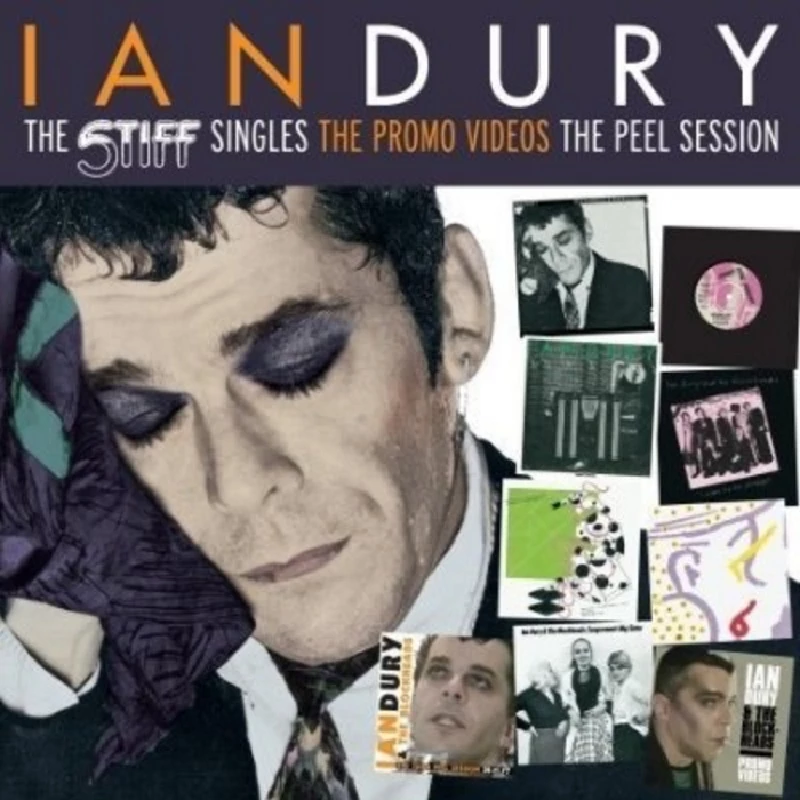
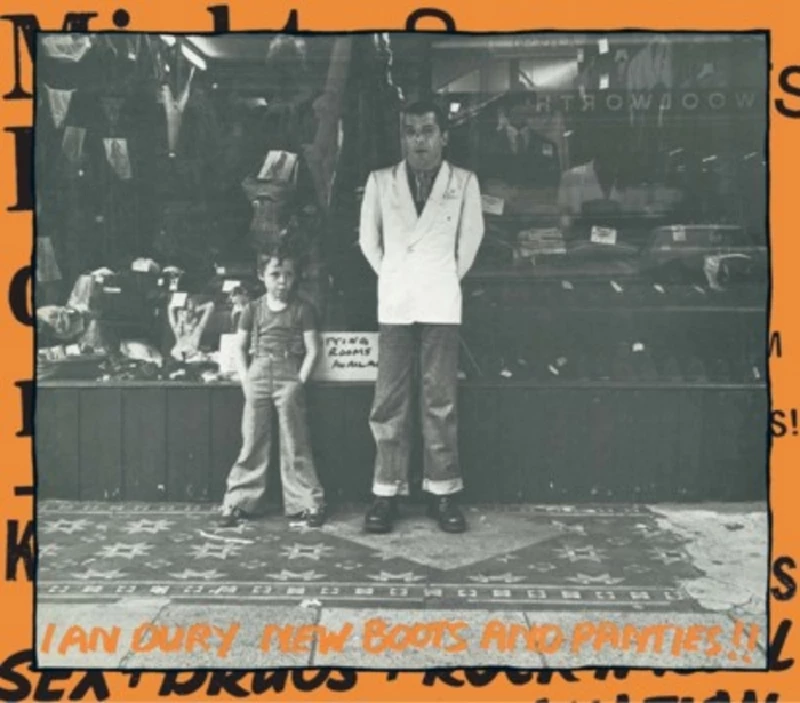
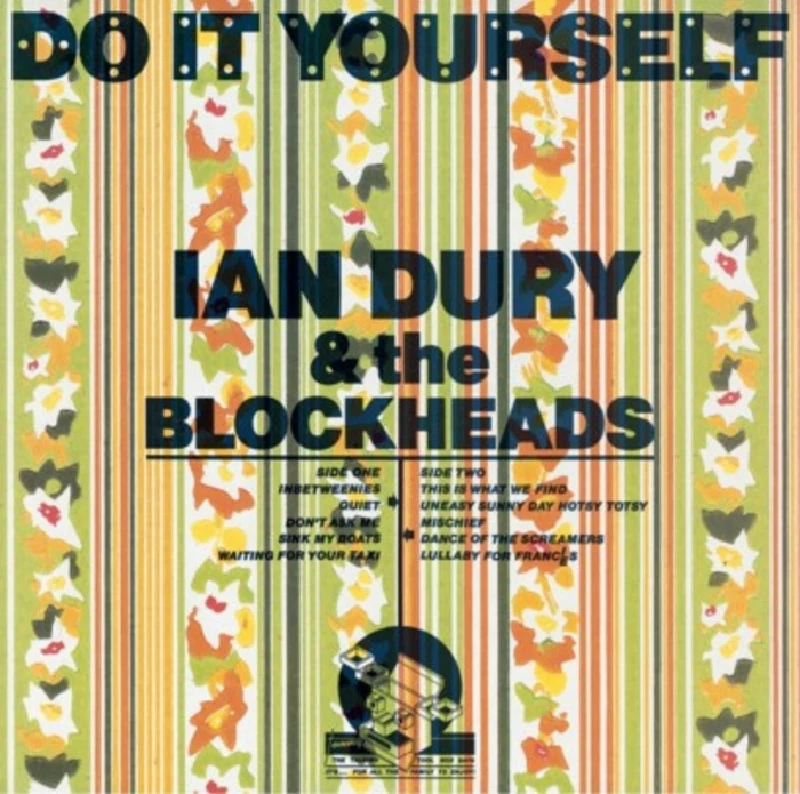
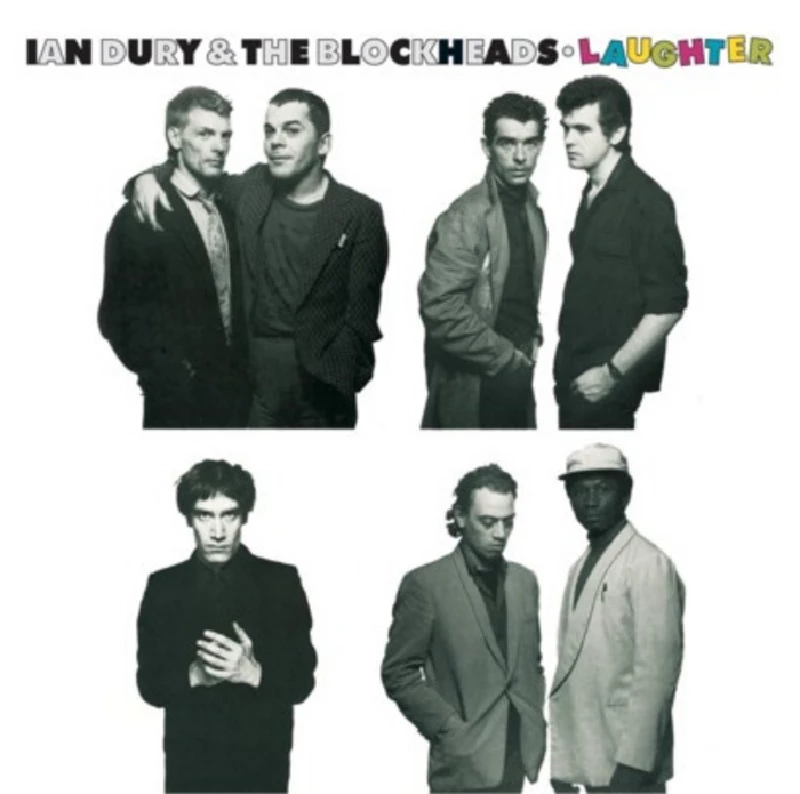
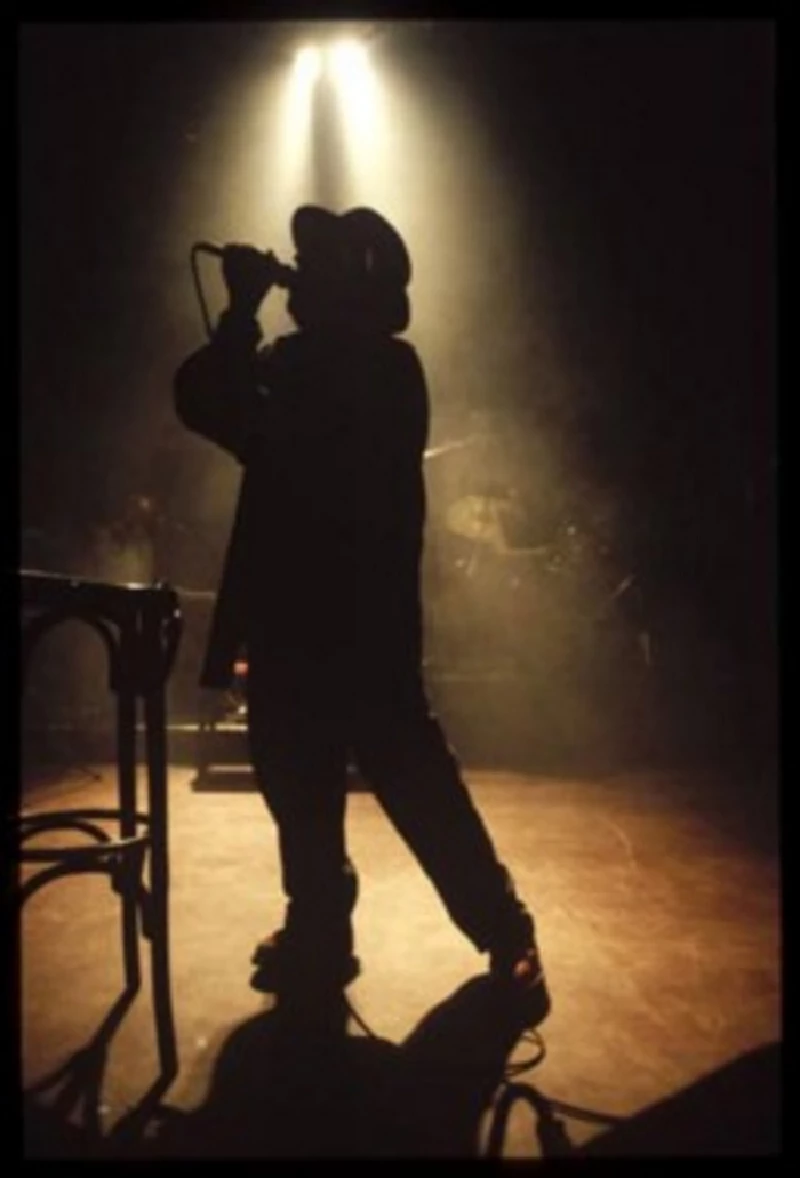
reviews |
|
Soundtracks (2001) |
| This is the first solo outing for Gabriel Amor (one half of avant -pop duo Amor/Belhom) and its quite wonderful in its scope. This all instrumental mini-album ranges from ambient French pop to sparse |
most viewed articles
current edition
John McKay - InterviewRobert Forster - Interview
Cathode Ray - Interview
Spear Of Destiny - Interview
Fiona Hutchings - Interview
When Rivers Meet - Waterfront, Norwich, 29/5/2025
Carl Ewens - David Bowie 1964 to 1982 On Track: Every Album, Every Song
Chris Wade - Interview
Brian Wilson - Ten Songs That Made Me Love...
Shrag - Huw Stephens Session 08.12.10 and Marc Riley Session 21.03.12
previous editions
Heavenly - P.U.N.K. Girl EPBoomtown Rats - Ten Songs That Made Me Love....
Allan Clarke - Interview
Manic Street Preachers - (Gig of a Lifetime) Millennium Stadium, Cardiff, December 1999
Oasis - Oasis, Earl's Court, London, 1995
Barrie Barlow - Interview
Dwina Gibb - Interview
Beautiful South - Ten Songs That Made Me Love...
Pixies - Ten Songs That Made Me Love...
Sound - Interview with Bi Marshall Part 1
most viewed reviews
current edition
Peter Doolan - I Am a Tree Rooted to the Spot and a Snake Moves Around Me,in a CircleVinny Peculiar - Things Too Long Left Unsaid
Garbage - Let All That We Imagine Be The Light
Vultures - Liz Kershaw Session 16.06.88
John McKay - Sixes and #Sevens
Little Simz - Lotus
HAIM - I Quit
Morcheeba - Escape The Chaos
Eddie Chacon - Lay Low
Billy Nomates - Metalhorse
Pennyblackmusic Regular Contributors
Adrian Janes
Amanda J. Window
Andrew Twambley
Anthony Dhanendran
Benjamin Howarth
Cila Warncke
Daniel Cressey
Darren Aston
Dastardly
Dave Goodwin
Denzil Watson
Dominic B. Simpson
Eoghan Lyng
Fiona Hutchings
Harry Sherriff
Helen Tipping
Jamie Rowland
John Clarkson
Julie Cruickshank
Kimberly Bright
Lisa Torem
Maarten Schiethart